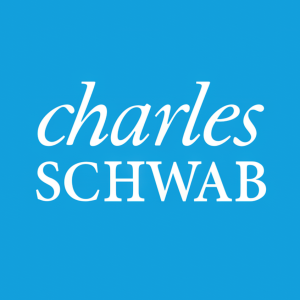Schwab Study: Workers Continue to Prioritize 401(K) Saving Amid Anxiety About Inflation and Market Volatility
Workers maintain savings rates but feel less confident about reaching their goals
“When inflation persists for an extended period of time, workers are inevitably going to feel a deeper impact on their wallets,” said Brian Bender, Head of Schwab Workplace Financial Services. “While many workers are trying to cut back on spending, some costs are unavoidable and certain areas of their finances have taken a hit. Despite these challenges, retirement saving continues to be a priority for workers, who have maintained their 401(k) savings rates and largely stayed on top of their 401(k) investments over the past year.”
Workers now believe they’ll need to save an average of
401(k): a must-have benefit
The 401(k) is becoming a non-negotiable for job seekers. When considering a new employer,
Compared to last year, more workers are also saving for retirement in a savings accounts (
Financial advice: new technologies emerge but workers still prefer the human touch
Half of workers would feel comfortable asking artificial intelligence tools like ChatGPT for help with financial planning, but for now, actual adoption is very low (
As in past years, the survey continues to underscore that advice plays a pivotal role in workers’ confidence. Just
Specifically, workers would like help calculating how much to save for retirement (
The SECURE 2.0 effect
In addition to the desire for basic retirement planning guidance, workers also want help understanding how new regulatory and legislative changes like the SECURE 2.0 Act affect their retirement plan. The new law expands retirement plan coverage for more workers and makes other changes to the retirement system to help workers prepare for retirement.
Just over half (
“It’s encouraging to see that many workers are in-tune with the evolving rules and regulations surrounding their retirement plans,” said Stewart. “By understanding what matters to employees, employers can drive engagement as they fine tune their benefit offerings to optimize recruitment and retention.”
About the survey
This online survey of 1,000
About Charles Schwab
At Charles Schwab, we believe in the power of investing to help individuals create a better tomorrow. We have a history of challenging the status quo in our industry, innovating in ways that benefit investors and the advisors and employers who serve them, and championing our clients’ goals with passion and integrity.
More information is available at aboutschwab.com. Follow us on Twitter, Facebook, YouTube, and LinkedIn.
Disclosures
Workplace Financial Services is a business enterprise which offers products and services through Schwab Retirement Plan Services, Inc.; Schwab Stock Plan Services; and Designated Brokerage Services. Schwab Retirement Plan Services, Inc., provides recordkeeping and related services with respect to retirement plans. Schwab Stock Plan Services is a division of Charles Schwab & Co., Inc. providing equity compensation plan services and brokerage solutions for corporate clients. Schwab Designated Brokerage Services (DBS), a division of Charles Schwab & Co., Inc., provides technology solutions for corporate clients with regulatory requirements to monitor employee security transactions. Schwab Retirement Plan Services, Inc., and Charles Schwab & Co., Inc. are separate but affiliated entities, and each is a subsidiary of The Charles Schwab Corporation.
Through its operating subsidiaries, The Charles Schwab Corporation (NYSE: SCHW) provides a full range of securities brokerage, banking, money management and financial advisory services to individual investors and independent investment advisors. Its broker-dealer subsidiary, Charles Schwab & Co., Inc. (member SIPC, www.sipc.org), and affiliates offer a complete range of investment services and products including an extensive selection of mutual funds; financial planning and investment advice; retirement plan and equity compensation plan services; compliance and trade monitoring solutions; referrals to independent fee-based investment advisors; and custodial, operational and trading support for independent, fee-based investment advisors through Schwab Advisor Services. Its banking subsidiary, Charles Schwab Bank, SSB (member FDIC and an Equal Housing Lender), provides banking and lending services and products. More information is available at www.schwab.com and www.aboutschwab.com.
0723-362J
View source version on businesswire.com: https://www.businesswire.com/news/home/20230802651052/en/
Mike Peterson
Charles Schwab
330-908-4334
mike.peterson@schwab.com
Carly Taylor
The Neibart Group
973-618-6993
SchwabRPS@neibartgroup.com
Source: The Charles Schwab Corporation







